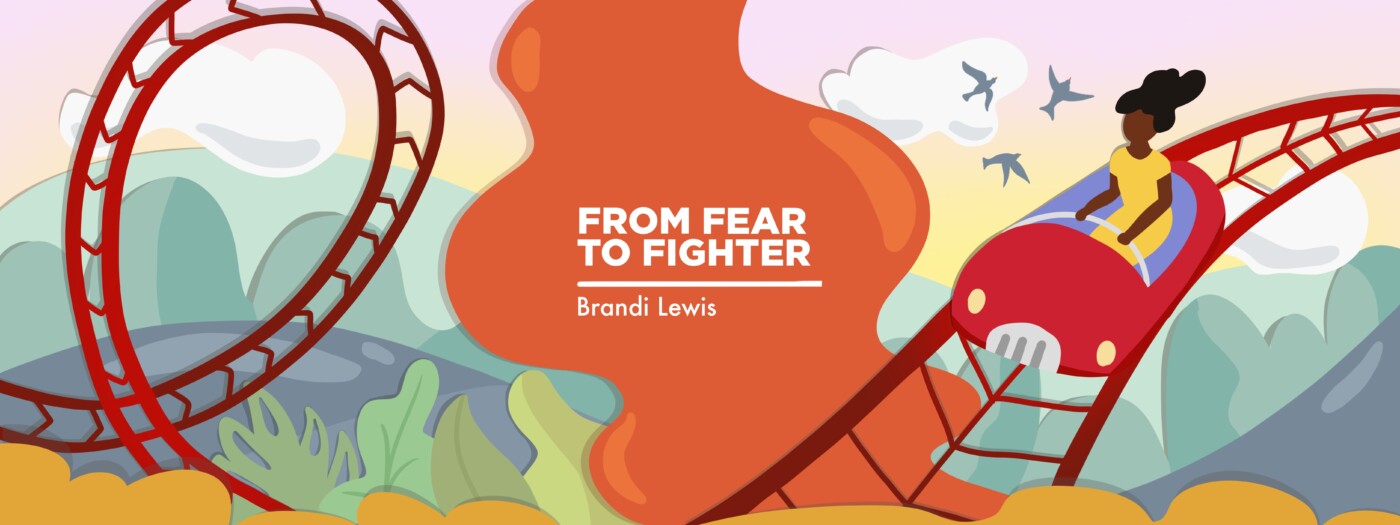Asking for help can lead to more gifts than you think
How my illnesses led me to discover the power of vulnerability
Written by |

Truth moment: I’m stubborn. I’d rather figure out problems by myself than ask for help. But when I was faced with two chronic illnesses, paroxysmal nocturnal hemoglobinuria (PNH) and aplastic anemia, I had to learn the importance of letting others help me.
Once I was diagnosed, caregivers were always around. But I still found myself trying to deal with my illnesses on my own by staying strong, reminding myself to take my medicine, and thinking I could attend doctor appointments alone. My mentality was “I can do this by myself.” Since the illnesses were mine, I didn’t want others to handle my burden and fix my problems.
As days turned to weeks, months, and long years of battling health issues, this way of living became my new normal. But I eventually realized I couldn’t do it alone. My caregivers were always willing and ready to help, but before real change could occur, I needed to step back from trying to control everything.
Giving up control wasn’t an easy task. It took some time for me to fully let go so others could step in. As I was already uncomfortable while dealing with my health issues, I felt as if I were stepping further into that “dis-ease” by opening up and learning about vulnerability.
One day, after stopping by the pharmacist to fill my prescriptions, I lined up all 15 of my pill bottles on the dining room table. Staring at them, I immediately became overwhelmed. I knew I didn’t have a choice about taking medicine every day. I tried to muster the strength to begin opening each bottle to take my medicine. Thoughts of being a burden to others filled my mind.
I turned to look at my mom, feeling doubtful about this new life. My mom looked back at me and said, “You’re not in this alone.” And with that, she went out and bought a pill organizer to make it easier for me, and she later took on the responsibility of filling up the organizer when it was low.
Doing this small task is one of many ways my caregivers lessen my stress.
Vulnerability isn’t a weakness
When I began to ask for help, I felt weak, like my power was being taken away, like I was handing my obstacles and battles to others to tackle. I wanted my actions to show my caregivers and family that I was sorry for adding pressure to their lives.
There’s a weird balance that comes with vulnerability, I’ve come to understand. I don’t have to be vulnerable with everyone, but it’s important to be vulnerable with some. It wasn’t until I asked for help that my relationships began to deepen. Before being diagnosed, I already had many great relationships. But the bonds became stronger when I was able to reveal my real and raw side.
In one of Brené Brown’s TED talks, she describes vulnerability as necessary to create and maintain intimate relationships. She explains that it’s not weakness and that having the courage to open up leads to strong relational bonds.
Over my time asking for help, I learned to live with my sense of weakness, powerlessness, and shame. I started to become more confident in releasing the power of embarrassment. As others wanted to help me, I found their faces and voices bespoke a happier mood.
Asking for help doesn’t just help me; it also helps others. And the relationships that come from such requests offer an unforgettable experience.
Take small steps to ask others for help. Then watch how your request helps their lives as well.
Note: PNH News is strictly a news and information website about the disease. It does not provide medical advice, diagnosis, or treatment. This content is not intended to be a substitute for professional medical advice, diagnosis, or treatment. Always seek the advice of your physician or other qualified health provider with any questions you may have regarding a medical condition. Never disregard professional medical advice or delay in seeking it because of something you have read on this website. The opinions expressed in this column are not those of PNH News or its parent company, Bionews, and are intended to spark discussion about issues pertaining to paroxysmal nocturnal hemoglobinuria.





